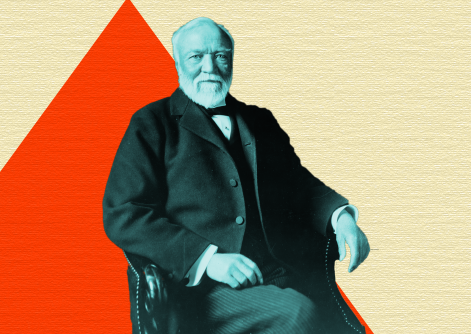The words sound innocent, but never in my life have I heard anyone speak as condescendingly as that white liberal professor did. Both my fists clenched and I was so angry I couldn’t speak. To my amazement, Darrell just smiled and said he was fine. When I recovered speech, I asked in amazement how he could bear what had happened. He shrugged it off and said, “they’re all like that.”
My rage was provoked even though I knew Darrell, though an amiable soul, probably should not have been at Georgetown. He was no fool, but when he asked me to look at his papers, they were extremely brief, to say the least, and the syntax, vocabulary, and argument were several grade levels below what most of our peers produced.
Still, despite his limitations, Darrell didn’t deserve that appalling condescension. No one without drool on his chin deserved it. And yet I don’t doubt that professor preened himself on his lack of prejudice and his compassionate views. As far as I could tell from Darrell’s passing marks for his retrograde school work, plenty of other professors were happy to pat the kid on the head and not let him flunk out.
Perhaps someone should give them Michael Knox Beran’s new book for Christmas: Pathology of the Elites. For a Cliffs Notes introduction to the book, read Kathryn Jean Lopez’s lively interview with the author.
Beran's critique of pity and elites raises a central issue for persons involved in charity or philanthropy, or anyone who just thinks he's a swell compassionate fellow.
Of course, you can already imagine professorial eyeballs rolling at the word elites, while some chair-warmer in a faculty lounge sneers, “Ha! Another low-brow attack on us highly educated folks by some Rush Limbaugh, Laura Ingraham wannabe.”
But even skimming the K-Lo interview will reveal that Mr. Beran isn’t just out to score populist points. In fact, the names he conjures with are quite respectable in the faculty lounge – including novelists Henry James and Fyodor Dostoevsky, literary critic Edmund Wilson, political theorist Hannah Arendt, social critic Christopher Lasch, and Lionel Trilling, the New York intellectual now best known for writing in 1950 that “at this time liberalism is not only the dominant but even the sole intellectual tradition.”
To read Beran, you’d think he knew Darrell, too, as he describes the way those pitying professors who condescended to Darrell aren’t interested in challenging the objects of their pity to improve their lives.
Certainly Darrell wasn’t challenged in his classes. I rarely saw Darrell crack any book. When not in class, he was almost always to be found sitting in bed, smoking pot and watching TV. After graduation, the university gave him a clerical job.
His situation perfectly matches these two passages from the interview with Beran:
The teacher who today shrinks from challenging his students because he is afraid to injure their self-esteem is not a compassionate figure; there is, in his failure to hold his students to his own private standards, a frigid pity, and a secret contempt. Yet it is not easy to see how teachers who have been trained under the modern system — one that too often encourages them to look upon their students not as unique individuals but as social types — can do much better.
And
Christopher Lasch argued that the philosophy of “social democracy” favored by so much of the modern elite … degrades “both the victims, who are reduced to objects of pity, and their would-be benefactors, who find it easier to pity their fellow citizens than to hold them up to impersonal standards, attainment of which would entitle them to respect.”
To be pitied by another man is to stand humiliated before him; however well-intentioned programs grounded in pity may be, they always end by laying low their intended beneficiaries. Pity does not lead to a flourishing in the pitied, though it may provoke their resentment, even their rage; the act of pitying is always a kind of strength condescending to weakness. Love awakens; pity oppresses.
The Darrells of the world won’t make much progress under the pitying eyes of the sort of Progressive whose condescension made my blood boil. True progress will require persons who can muster enough compassion and truth-telling to be honest with each Darrell they meet, who can treat everyone as a flesh-and-blood man or woman with particular strengths and weaknesses, nurturing the former and challenging the latter.
I need that. You need that. And every Darrell needs it, too.






1 thought on “Pity the pitied”